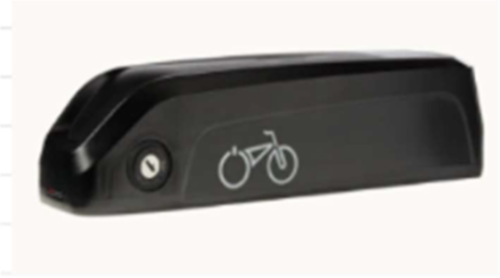WASHINGTON (BRAIN) — The Consumer Product Safety Commission issued a warning to stop using some Rad Power Bikes models because the lithium-ion battery can unexpectedly ignite and explode, especially when the battery or harness has been exposed to water and debris.
Rad Power Bikes did not agree to "an acceptable recall," according to the CPSC, and the brand told the agency that given its financial situation, it can't offer replacement batteries or refunds to consumers.
Earlier this month, Rad Power Bikes told Washington state officials that it would possibly lay off 64 employees in the state in January and could shut down if additional funding is not secured.
"Rad's Safe Shield batteries and semi-integrated batteries are not subject to the agency's statement," according to a statement from Rad Power Bikes that the CPSC is including with its warning."Rad had the batteries re-tested by third-party labs as part of this investigation; the batteries passed these tests again. Nonetheless, in an effort to partner with the CPSC, Rad proposed multiple solutions to the agency in good faith. Rad informed the agency that its demand to replace all batteries, regardless of condition, would immediately put Rad out of business, which would be of no benefit to our riders. Rad is disappointed that it could not reach a resolution that best serves our riders and the industry at large. Rad reminds its customers to inspect batteries before use or charging and immediately stop using batteries that show signs of damage, water ingress, or corrosion, and to contact Rad so we can support our riders."
A Rad Power Bikes spokesperson emailed BRAIN after the CPSC warning:
"Rad Power Bikes firmly stands behind our batteries and our reputation as leaders in the e-bike industry, and strongly disagrees with the CPSC's characterization of certain Rad batteries as defective or unsafe. We have a long and well-documented track record of building safe, reliable e-bikes equipped with batteries that meet or exceed rigorous international safety standards, including UL 2271 and UL 2849. The CPSC proposed requiring these UL standards in January 2025 but has yet to adopt them. Rad e-bikes have met these standards for years."
The spokesperson added that Rad Power offered "multiple" solutions, including offering consumers an opportunity to upgrade to its Safe Shield batteries at a "substantial discount." The Safe Shield battery, the spokesperson said, incorporates new, safer, and better technology but it does not mean that preceding products are not safe or defective.
The CPSC said it is aware of 31 reports of fire, including 12 reports of property damage totaling approximately $734,500. Some of these incidents occurred when the battery was not charging, the product was not in use, and the product was in storage. The agency urges consumers to immediately remove the battery and dispose of it following local hazardous waste disposal procedures.
The batteries were sold with the following Rad Power Bikes e-bike models and as replacement batteries: RadWagon 4, RadCity HS 4, RadRover High Step 5, RadCity Step Thru 3, RadRover Step Thru 1, RadRunner 2, RadRunner 1, RadRunner Plus, and RadExpand 5.
The battery model number (HL-RP-S1304 or RP-1304) is printed on a label on the back or rear of the battery.
The batteries were sold on RadPowerBikes.com and at Best Buy stores and independent bike shops nationwide for about $550 for replacement batteries and between $1,500 and $2,000 when sold with e-bikes.


